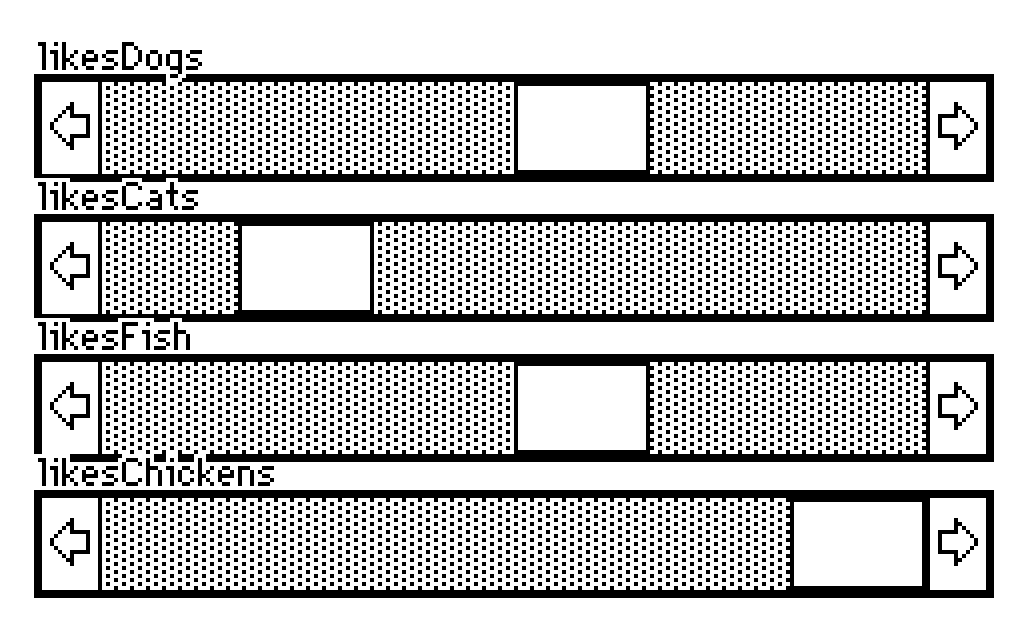So basically you'd want to have counters for each result tracking each time they're picked - so like starting them all at 0 and then adding 1 each time the answer is picked. I like to use sliders for storing numeric values with a constrained range - since you know the maximum value possible is 5 as there's only 5 questions in the hypothetical you'd just need a range from 0 to 5. You can put the sliders on a hidden card that the player won't ever see. Then let's say you have a button for each answer on a card and and you can put something like this in the "on click"
cardwithsliders.widgets.slider1.value: cardwithsliders.widgets.slider1.value + 1 go["question2"]
And then at the end you'd just need to check which slider has the highest value and go to an appropriate ending page. There may be a smarter way to do this but it's early here so I'd just go with like a bunch of if statements.
if (cardwithsliders.widgets.slider1.value > cardwithsliders.widgets.slider2.value) & (cardwithsliders.widgets.slider1.value > cardwithsliders.widgets.slider3.value) & (cardwithsliders.widgets.slider1.value > cardwithsliders.widgets.slider4.value) go["ending1"] elseif #all the other ways around end
(apologies if any of my code is wonky, I'm just writing this off the top of my head haha)
You may not have much of a programming background but dabbling in stuff like this is a great way to learn! If you can work out the logic in a "do this then do that" and "if this then we do this, otherwise we do that" then it's just a matter of translating it into the syntax you need


